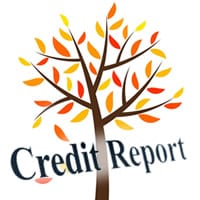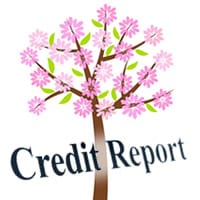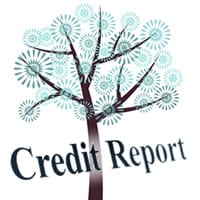Have I ever had credit card debt? Yes! There have been times in my life when I haven’t been able pay my balance in full when the bill arrives.
Credit card debt is the enemy of a good budget, but life happens. Even the best budgeter can have unplanned expenses.
According to a recent study by Trans Union, the average US adult carries $4,878 in credit card debt. That doesn’t include zero percent balances. That means the average US adult owes almost $5,000 plus the additional interest.
If this is you, I want you to take a deep breath. Debt repayment is just financial housework. There’s nothing to be afraid of here.
Do you know what’s really scary? Having company due in 5 minutes when the bathrooms aren’t clean. When that happens, do you lock the front door and pretend you’re not home? No! You walk into the bathroom and decide which part needs to be cleaned first (just in case you run out of time before the doorbell rings).
That’s right. I just compared paying off credit card debt to scrubbing the toilet. ![]() That’s because you want to use the same thought process with your credit cards. Some cards will need more attention than others, so you need to make a list of your debts which includes the interest rate and minimum payment amounts.
That’s because you want to use the same thought process with your credit cards. Some cards will need more attention than others, so you need to make a list of your debts which includes the interest rate and minimum payment amounts.
There are two methods to setting priorities on your credit cards.
Option 1: Pay the highest interest rate first. Your list will look something like this:
| Priority | Interest Rate |
Minimum Payment |
Current Balance |
| Card #1 | 19% | $100 | $5,025 |
| Card #2 | 15% | $47 | $2,141 |
| Card #3 | 11% | $177 | $9,056 |
This is the best option if you want to save money. Using the example above, you pay as much as your budget will allow on card #1, and only the minimum on cards #2 and #3. When #1 is paid off, you make card #2 the highest priority. Rinse and repeat until all cards are paid in full. When you pay the highest interest rate first, you pay less overall.
Option 2. Pay the smallest debt first. Your list will look something like this.
| Priority | Interest Rate |
Minimum Payment |
Current Balance |
| Card #1 | 15% | $47 | $2,141 |
| Card #2 | 19% | $100 | $5,025 |
| Card #3 | 11% | $177 | $9,056 |
This option is good if you need to see results to stay motivated. Receiving a bill with $0 due is really satisfying. A positive emotional boost can really keep the momentum going. You can compare it to housework, dieting, or exercise. We like to see improvements.
Bottom line: You have chosen to get out of debt (your goal) and the actions that will get you there (your plan). You’ll know the best option for you and your family, and you can change tactics whenever you want as long as you’re moving forward.
Let us know which option you choose and how you are doing.






